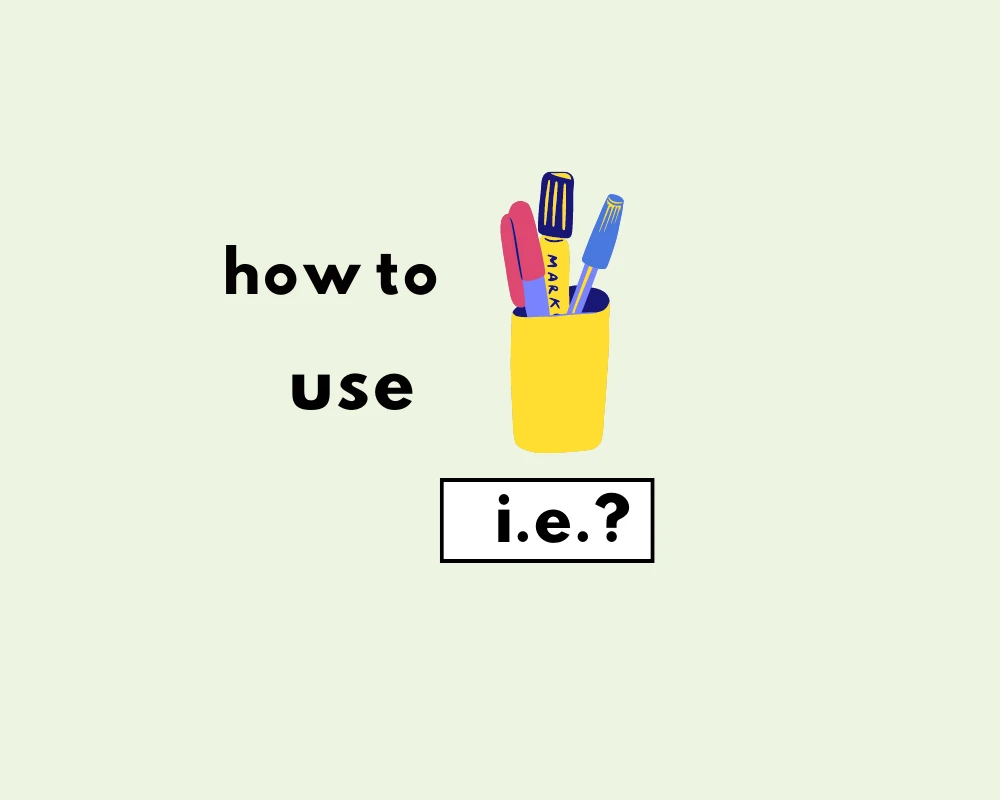Contents
Toggle
What does “i.e.” and “e.g.” mean?
People appear somewhat dazed on the differences and proper usages of the Latin abbreviations “i.e.” and “e.g.“
The two are indeed different, so if you’ve been using them interchangeably, you’ve been wrong this whole time. Let us all avoid embarrassing grammar mistakes together!
How to use i.e. and e.g.
I.e. stands for id est, which translates to “that is”. The information that follows i.e. should help clarify or more precisely define what precedes it; as you can see from the sentence:
The hotel offers various amenities; i.e., a swimming pool, gym and spa services.
From the sentence, we understand that the swimming pool, gym and spa services is how the hotel defines its various amenities.
E.g. stands for exempli gratia, which directly translates to “for example”. Much like “for example”, e.g. introduces or gives a few examples from a number of possible examples within the same category or topic:
Certain fur-bearing mammals, e.g., nutria and otters, spend much of their lives in the water.
Nutria and otters are both examples of fur-bearing mammals, (amongst other examples). Because e.g. implies that there are other examples to choose from, it’s not to also include “etc.” in the same sentence.
How to punctuate “i.e.” and “e.g.”
In American English:
- Write i.e. and e.g. using lower case letters, with periods between both letters.
- Do not italicize i.e. or e.g., unless spelling out the individual words.
- Neither abbreviation should be in italics (unless the full abbreviation is being spelled out out; e.g., exampli gratia written out should be in Italics since it’s in a different language, Latin).
In sentences where what comes before and after i.e. or e.g. are both independent clauses, use a semicolon and a comma. When i.e. and e.g. appear in the middle of a sentence, they should be offset by either parentheses or commas.
Examples of “e.g.” in sentences
I enjoy various outdoor activities, e.g., hiking, cycling, and swimming.
The store offers a wide range of products, e.g., electronics, clothing, and home appliances.
She has traveled to many countries, e.g., France, Japan, and Australia.
The class will cover different topics, e.g., history, science, and literature.
The restaurant serves a variety of dishes, e.g., pasta, sushi, and burgers.
Examples of “i.e.” in sentences
We need to prepare all the required documents; i.e., passports, visas, and identification cards.
The company focuses on software development; i.e., creating computer programs.
The new policy applies to all employees; i.e., both full-time and part-time staff.
She was passionate about medieval literature; i.e., works from the Middle Ages.
Lesson in review: “i.e.” vs. “e.g.”
- I.e. defines something specific indicated by the previous sentence, and is used interchangeably with phrases like “that is to say”, or “specifically”.
- E.g. gives an example amongst other possible examples or alternatives.
Read about other confusing words
- Irregardless vs. Regardless (Which is Correct?)
- Is it Rational or Rationale?
- “Breathe” vs “Breath”: Which is the Correct Word?
- Former vs. Latter, Explained
- Compliment vs Complement (Definition & Examples)
- Is it “Labour” or “Labor”?
Sources
- Harper, Douglas. “Etymology of i.e..” Online Etymology Dictionary, https://www.etymonline.com/word/i.e.. Accessed 25 July, 2023.
- Harper, Douglas. “Etymology of e.g..” Online Etymology Dictionary, https://www.etymonline.com/word/e.g.. Accessed 25 July, 2023.










